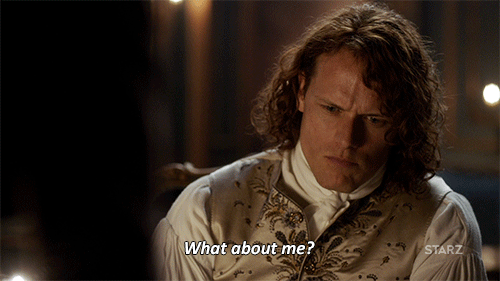If you spent any time in a high school or university class, or maybe you’re just a fan of the classics, chances are you’ve been familiar with Shakespeare’s A Midsummer Night’s Dream at at least one time or another. And while Shakespeare’s rendition of the fairy realm isn’t the original canon, especially concerning the fairy queen and her provocative king, it seems no one really had any complaints in the way they were portrayed.

Faerie King Oberon
King Oberon’s first appearance is reportedly from a French novel around Huon de Bordeaux, translated into English by Sir John Bourchier in 1534. In this novel, Oberon is portrayed as:
… a fairy king who lives in a wood that is full of strange and magical things. He is only three feet tall, and is deformed, with a crooked shoulder, yet with a face so handsome that no mortal man can remain unmoved by his beauty. Oberon wears a gown studded with precious stones, so bright that it shines like the sun. He carries a magic bow that can kill any animal he aims his arrows at, and a magic horn that can cure sickness and hunger when it is blown.
Oberon speaks to all who enter his wood, and anyone to whom he speaks is lost for ever. Those who remain silent and do not speak to Oberon are beset by terrible storms.
And so, not only is this king a bit of a playboy, he’s also an adult child who throws tantrums when he doesn’t exactly get his way. This is shown especially in A Midsummer Night’s Dream, particularly in scenes where he’s attempting to take his queen’s changeling baby in an effort to make it his servant, but mostly as a power-trip against her, and a show of jealousy as it’s made very clear Titania is more interested in showering the small child with love and affection rather than her husband.

Not only is Oberon the jealous type, he’s also the adulterous type, as mentioned before. Whether it be other fairies, farm girls, or Hippolyta, queen of the Amazons (and Wonder Woman’s mother, if you follow the Marvel canon — though technically Diana is an authentic Greek myth, Wonder Woman herself is a wholly original character. But, I digress).
While Oberon is mostly portrayed as having a negative personality, he has sometimes been shown as being gracious, as well — though on his own terms, and with his own game rules.
… he feels so sorry for Helena that he uses his magic to help her land Demetrius, and he also goes out of his way to make sure that each of the young Athenian lovers is paired up with a suitable partner. He even blesses the happy couples’ marriage beds so they won’t have ugly kids.
Seems pretty benevolent, right?
… Oberon only helps the lovers out after he’s had a good laugh at their expense. At times, he also acts like a jealous, power-hungry jerk who’s willing to trick and humiliate his own wife in order to get his way. It doesn’t look so good when Titania refuses to hand over her foster child, so he sprinkles love juice in her eyes and makes her fall in love with an “ass” and be distracted enough to give up the little “changeling” boy. Even though Oberon eventually takes pity on Titania, he only reverses the spell after he gets his way.

It’s made clear that when he isn’t sleeping around or harassing his wife, chances are he’s out in the forests playing tricks on unsuspecting humans, probably right alongside his other mischievous Seelie subjects. Some of their most notable tricks include pinching, ruining a good meal, and spoiling milk and food, which might actually come in handy if you have a compost pile lying around. I doubt they take requests, though.
Knowing all of that, it doesn’t shock me that even Titania has her extramarital flings — likely just to keep from going crazy or committing a murder.

Faerie Queen Titania
Certainly not any angel, herself, Titania is just as familiar with lovers other than her husband as much as he is with her. But it makes sense; her beauty lauded across both the fairy and human realms, and in what I imagine to be robes made up of stunning natural fibers and decorated with flowers, petals, and leaves — a summer look anyone could achieve with a little time on their hands. Could anyone wear them as well as she could, though? I want to say, probably not.
Despite being the most powerful and popular female character in A Midsummer Night’s Dream, however, Titania isn’t meant to be portrayed as a necessarily “strong” woman.
Titania’s not quite a commentary on the nature of women, as she’s the only woman in the play who is actually enchanted (so her madness is kind of excused). However, once Oberon releases Titania from the spell, she doesn’t exactly light into Oberon for his horrible treatment of her.

Titania isn’t exactly a model feminist, or even an emblem of feminine oppression, but she is another interesting case study if you want to look at romantic relationships. Despite her marriage to Oberon, and the fact that they kind of share the whole ruling-the-fairy-kingdom gig, they spend quite a bit of time apart and have several non-spouse overnight guests during the process. What’s interesting is that this doesn’t seem to really bother either them that much. Oberon even goes so far as to trick his wife into doting on another creature.
It’s mentioned in the play how the Queen and King’s arguments can sometimes escalate to such heights that they become violent and raucous enough to actually change the weather, the seasons, and disrupt the growing of crops and other necessities for humans to survive.

It’s said this represents what the poor experienced in the real world when royal and other powerful families would fight with one another — while it never changed the weather as the rows between Titania and Oberon would, the feuds would still have negative impacts on the people and their livelihoods, like whether or not they’d have enough food for the winter.
A lot can be said about the royal couple — but together, they ruled over the Seelie kingdom, whether good or bad. Despite their differences and affinity for tricks and extra lovers, when it comes down to it, they’re devoted to one another and show their love often. To quote the play itself:
OBERON
How not nice to see you, Titania.
TITANIA
What, are you jealous, Oberon?—Fairies, let’s get out of here. I’ve sworn I’ll never sleep with him or talk to him again.
OBERON
Wait just a minute, you brazen hussy. Aren’t you supposed to obey me, your lord and husband?
TITANIA
If you’re my lord and husband, I must be your lady and wife, so you’re supposed to be faithful to me.
But I know for a fact that you snuck away from Fairyland disguised as a shepherd,
and spent all day playing straw pipes and singing love poems to your new girlfriend.
Just kidding.

Kelsey graduated from Boise State University with a BA in Visual Arts, and is currently working as a freelance writer, while doodling anime on the side with one hand and petting cats with the other.

Oh wow! Okay so I’ve seen Midsummer’s Night Dream in a movie adaptation. Hate to admit I never read it though. I LOVED learning about Titania and Oberon! OMG! They way you explain it makes learning FUN! Another awesome post.